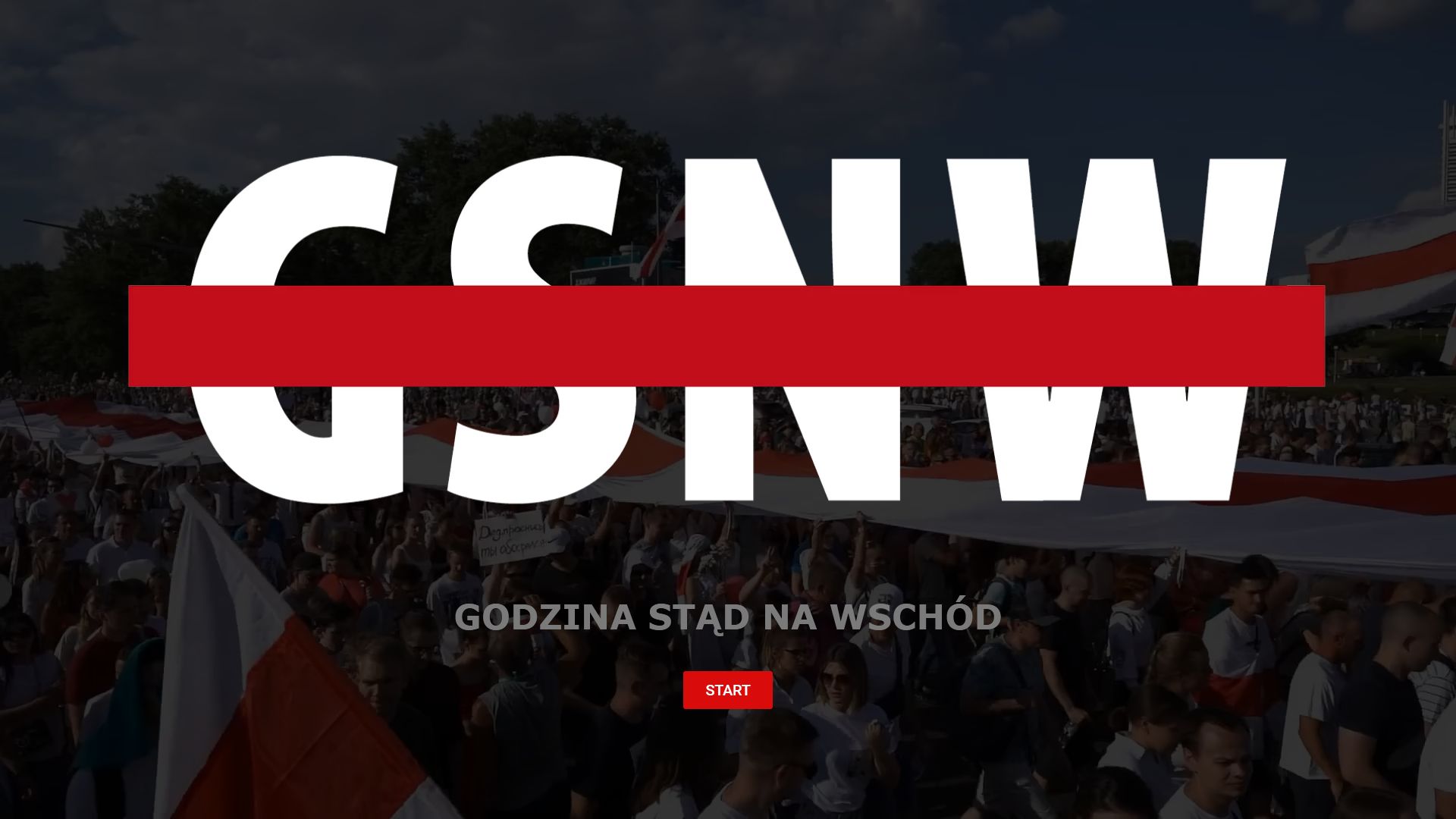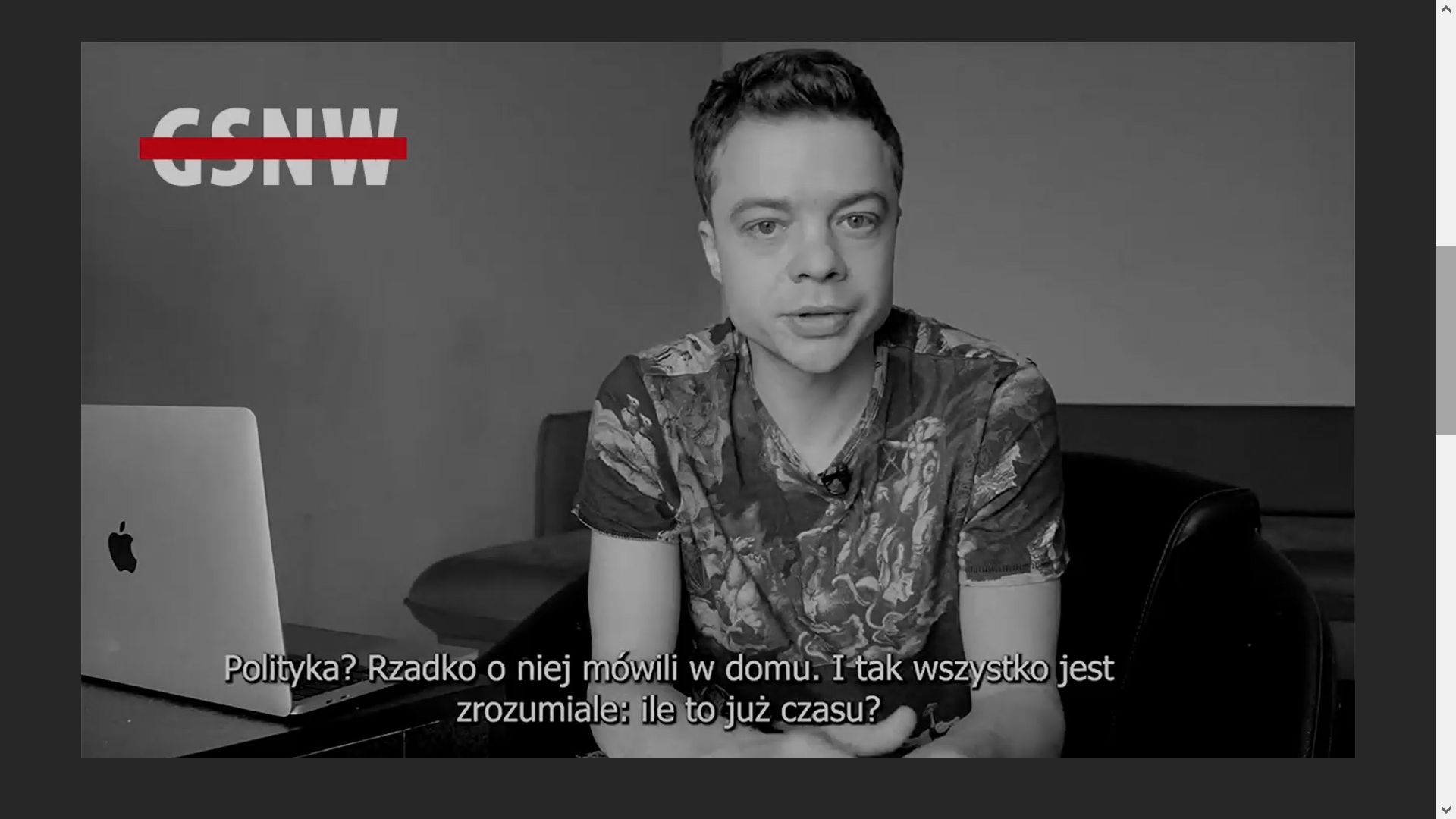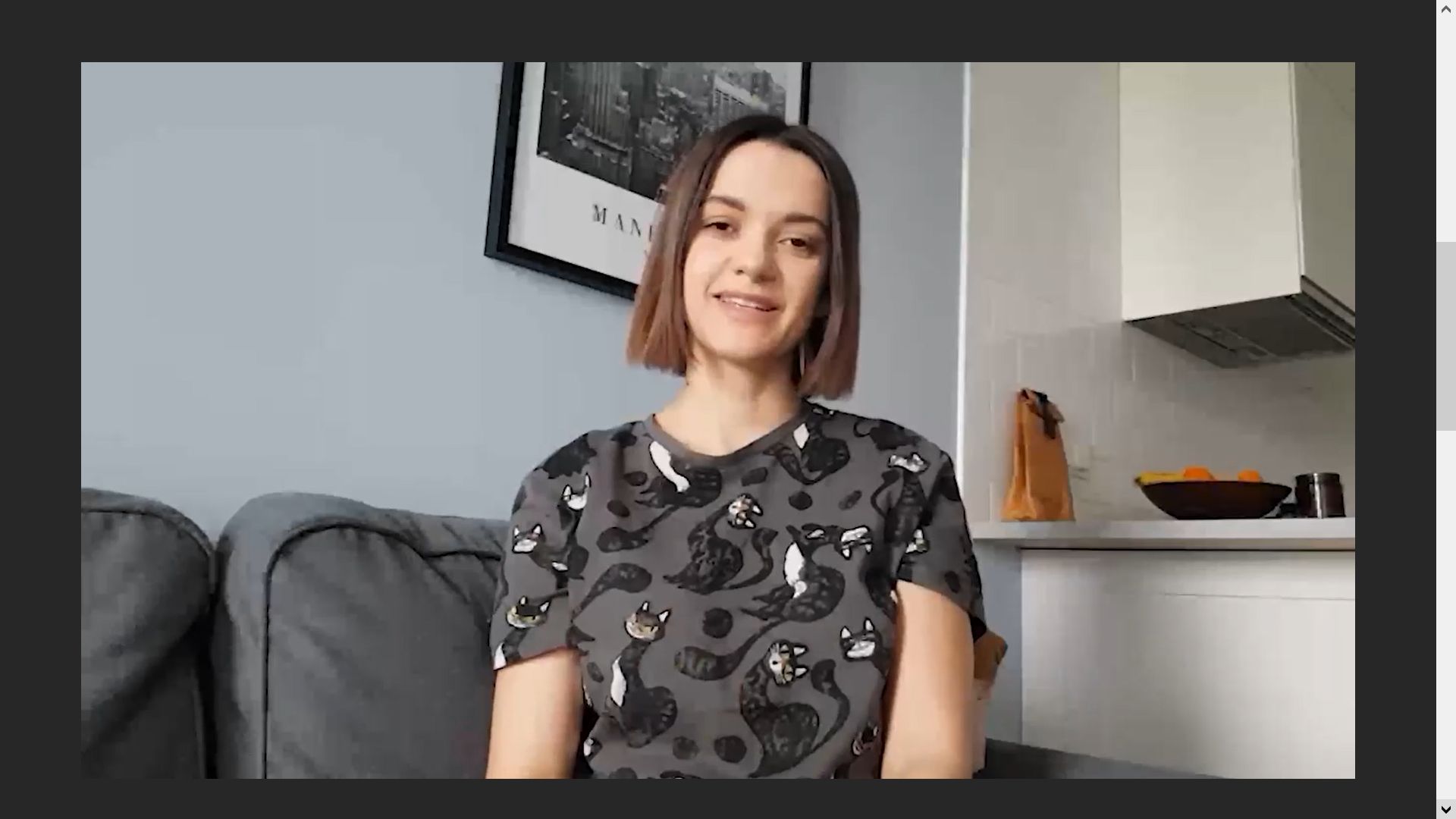Project: An Hour Away, Eastward
Area 1. Human rights protection (including gender equality)
Game. Two Characters. Young, in love. They tell a story about themselves.
Ales is 22 years old. He’s studying, he wants to be a programmer, he’s already making apps with his friends. “I had a normal childhood,” he says, “football, PES [Pro Evolution Soccer], family trips to Spain or Egypt, parties in the neighbourhood”. More pictures appear on the screen. He talks about the collapse of the USSR and the relics of the past that are still present in Belarus: names, architecture, the Russian language and tractors. “Politics? They rarely talked about it at home. And so it’s all understandable: how long has it been? For 20-30 years nothing has changed anyway. […] I had no expectations about this summer, I just wanted to finish the academic year and spend time with Khrischina.
Chryscina is 21 years old. She is studying and loves cooking (especially baking). She dreams of having her own bakery, for now she is active in her home kitchen and on Instagram. “You know, baking is such an activity that you completely forget about everything. It is a huge pleasure”. She recalls an ordinary childhood in a block of flats on the outskirts of Minsk, an ordinary school with a bunch of hooligans, holidays at her grandmother’s house, Brazilian TV series in the 90s. “I have no idea how I grew up successful with such a background. How it happened that Ales got interested in a person like myself. I guess opposites do attract. And to love is, after all, something wonderful. It’s probably the first time I’ve been so involved,” she adds and lowers her gaze, a little embarrassed. Just don’t tell Ales. I’d better tell him myself.”
They are dating for the weekend. They want to celebrate their anniversary together. They talk about the elections, they dream of being able to celebrate the Belarusian victory too. Khristina has more faith that maybe this time it will work. Ales is sceptical. He would like to live in a free country, but says it will be as usual. The elections will be rigged and Alyaksandr Lukashenka will take power again.
And suddenly these two find themselves at the centre of political events that happen in August 2020 and later in Belarus. The authorities start a war against their citizens. They become participants in protests, then repression. We see: violence, brutal militia interventions, people being beaten in the streets, being shot with rubber bullets. Citizens are protesting. They want free Belarus.
The ‘An Hour Away, Eastward’ game uses documentary footage and the storyline is based on authentic characters and video blogs in the style of docufiction (i.e. a combination of documentary and fiction). This stirs up emotions. “Difficult emotions are aroused by this project, because of the subject, of the protests, of how ‘this screw is being tightened’, and of the sentences being passed… We don’t hide it, there are photos and footage, because we can’t imagine talking about it without showing what it looks like,” Maria Czykwin said, the originator and one of the scriptwriters of this game aimed at young people over the age of 16.
About history, about them, about us. What would you do in their shoes?
The game is about history. It shows what happened in Belarus after the last elections. But it is also a way to make this history matter to more and more people, to young people from Poland. It quickly turns out that it is also, in a sense, about the choices that secondary school students may also face. Lessons using the interactive game were conducted in schools in the Mazovia and Podlasie regions. What is it about? Young people follow the story of two characters, and at key moments make decisions on their behalf. They choose whether Ales will open the door of his flat to Vitalik, a fellow student who is being chased by the security services. They decide whether Khristina, will emigrate to Poland or stay in Belarus. Each choice means a change in the narrative of the game, but it also produces certain consequences – as in life.
It is not about the decision itself, but about the discussion that follows it. “The aim of the game is to raise awareness of persecutions and human rights violations. […] Belarus is here a case study to help empathetic understanding of the ‘other’, as well as to prevent discriminatory behaviour and attitudes, towards other minorities, of migrants encountered”, the authors claim. It is a pretext to talk about human rights and the hardships of emigration, the strength and weakness of new technologies, but also to discuss choices and responsibility for decisions someone makes. It provokes reflections about various ways democracy is slowly and invisibly being diluted and rights are being taken away,” Maria Czykwin, the game’s originator said. “In the face of the war in Ukraine, lying Russian propaganda, and growing xenophobia towards Belarusians living in Poland, the project seems particularly important to us” (citation: https://dzieje.pl/edukacja/mlodziez-poznaje-najnowsza-historie-bialorusi-poprzez-multimedialna-gre).
The project “An hour from here to the east” is implemented by educators associated with the Sustainable Strategies Network Foundation. Project partners are the Tutaka Foundation and the Centre for Development and Environment (SUM) at the University of Oslo.
Project’s website: www.godzinastadnawschod.pl
More information about the project >>




